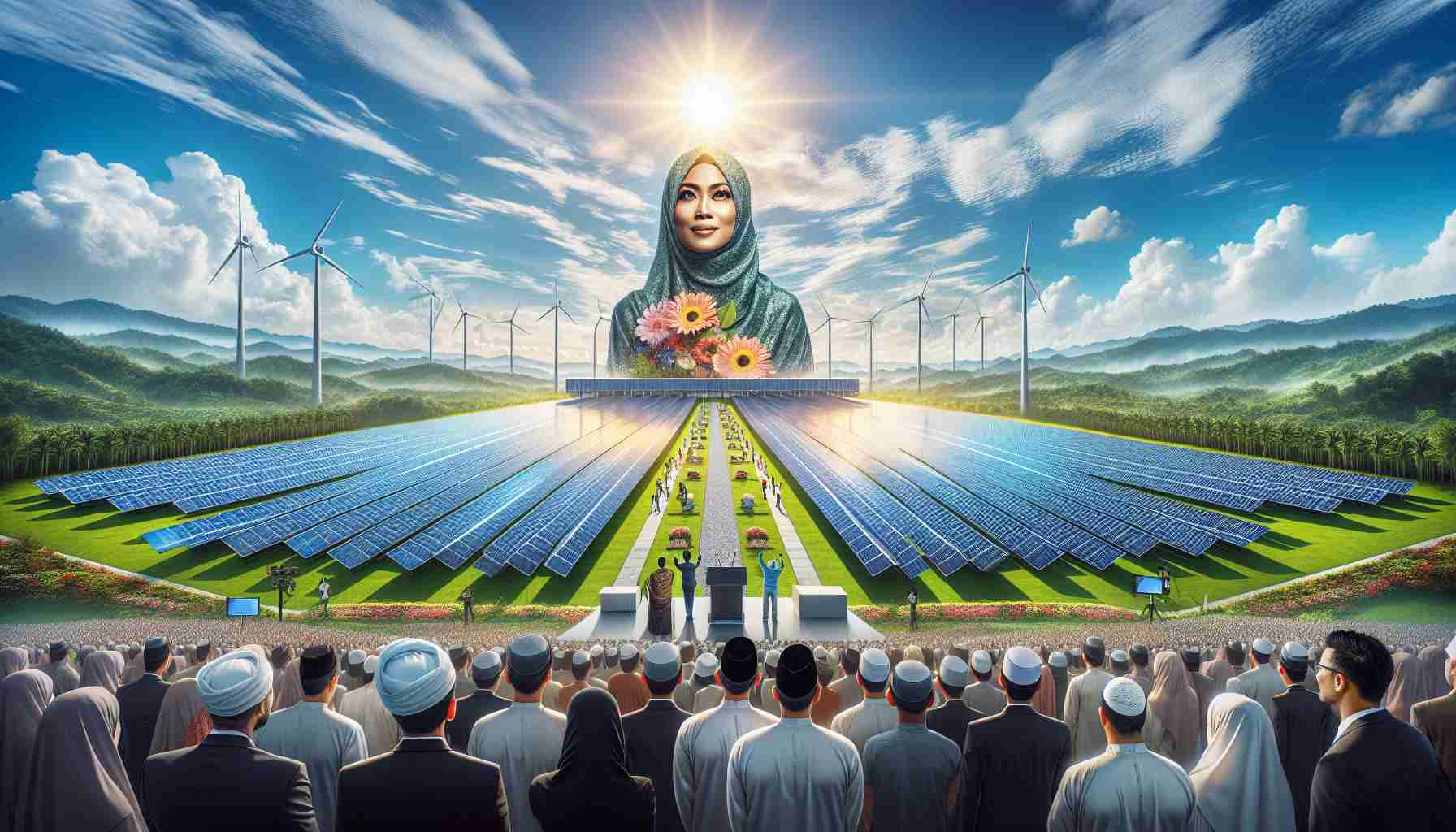In a bold move towards sustainability, Malaysia is stepping up its commitment to renewable energy with a fresh initiative aimed at harnessing solar power. The Ministry of Energy Transition and Water Transformation (Petra) has opened an exciting tender process to facilitate the development of 2 gigawatts of large-scale solar projects. This significant undertaking marks the second bidding round in under a year, reflecting a growing momentum in the nation’s shift towards green energy.
The latest round is part of the Large Scale Solar (LSS) program and aims to enhance the country’s renewable energy capacity, aspiring to have 70% of electricity generated from renewable sources by 2050. The tender features two distinct packages: the first includes ground-mounted solar facilities with capacities between 30 MW and 500 MW, totaling 1.5 GW, while the second package focuses on floating solar projects with an allocation of 500 MW and capacities ranging from 10 MW to 500 MW.
Petra envisions that the successful solar projects will be operational by 2027, significantly contributing to Malaysia’s energy mix. Interested developers can find the Request for Proposal (RFP) documents on the Energy Commission’s website, with all submissions due by the end of February. This initiative showcases Malaysia’s forward-thinking approach to clean energy and sustainability.
Implications of Malaysia’s Solar Initiative
Malaysia’s ambitious solar power initiative holds profound implications for its society, culture, and the global economy. By targeting 2 gigawatts of solar energy, Malaysia can emerge as a leader in sustainable practices within Southeast Asia. As the nation pivots towards greener energy sources, it encourages a societal shift that prioritizes environmental stewardship among its citizens. This transition could foster greater public support for sustainable policies, enhancing a culture that values ecological responsibility.
In terms of the global economy, Malaysia’s commitment to renewable energy may position it as a critical player in the expanding green technology market. Countries worldwide are investing heavily in renewables, with the International Renewable Energy Agency predicting a growth rate of 8% annually in the renewable sector. By establishing a robust solar infrastructure, Malaysia stands to attract foreign investment, further fuelling economic development and job creation in green technologies. With the global economy increasingly focused on sustainability, Malaysia’s initiative can serve as a model for other nations.
From an environmental perspective, the shift to solar energy could significantly reduce greenhouse gas emissions and reliance on fossil fuels, contributing to a more sustainable future. Furthermore, with the rise of floating solar installations, water bodies that are currently underutilized can be optimized for energy production, potentially lessening the impact on land ecosystems. As these trends evolve, Malaysia’s efforts may ignite a widespread movement toward innovative energy solutions, underscoring the urgency for global cooperation in combating climate change.
Malaysia’s Solar Energy Boom: A Game Changer for Renewable Power
As part of its ambitious shift towards sustainable energy, Malaysia is making significant strides in solar power development. With the launch of a new tender process by the Ministry of Energy Transition and Water Transformation (Petra), the country is set to expand its renewable energy capacity by 2 gigawatts (GW) through large-scale solar projects, reflecting a proactive approach to green energy solutions.
Overview of the Tender Process
This latest initiative marks the second bidding round for the Large Scale Solar (LSS) program within a year, underscoring the urgency and dedication of Malaysia toward increasing its renewable energy output. The tender is split into two main packages:
– Ground-Mounted Solar Facilities: This package encompasses 1.5 GW of capacity, allowing developers to propose projects ranging between 30 MW and 500 MW.
– Floating Solar Projects: Allocating 500 MW, this package focuses on innovative solutions with capacities from 10 MW to 500 MW.
Renewable Energy Goals
Malaysia’s commitment to renewable energy is ambitious, targeting 70% of its electricity generation from renewable sources by 2050. The successful completion of the awarded solar projects is expected by 2027, significantly enhancing the country’s energy landscape.
Use Cases and Benefits
1. Energy Diversification: These solar projects will help diversify Malaysia’s energy mix, reducing reliance on fossil fuels and enhancing energy security.
2. Job Creation: The projects are anticipated to generate jobs in solar energy development, from engineering and construction to operations and management.
3. Technological Innovations: The focus on floating solar facilities represents a move towards innovative energy solutions, potentially minimizing land use while generating power.
Features of the RFP
Interested developers can access the Request for Proposal (RFP) documents on the Energy Commission’s official website. All submissions for the tender are expected to be completed by the end of February, ensuring a timely progression toward project initiation.
Trends and Insights
Current global trends emphasize the importance of transitioning to renewable energy due to climate change and the need for sustainable practices. Malaysia’s initiative aligns with global movements, positioning the country as a growing hub in the renewable energy sector within Southeast Asia.
Security and Sustainability Aspects
The shift to solar power not only contributes to greener energy solutions but also enhances national energy security by reducing dependency on imported fossil fuels. Such initiatives are crucial for fostering a resilient economy and sustainable future.
Pros and Cons of Solar Energy
Pros:
– Renewable and sustainable energy source.
– Reduces greenhouse gas emissions.
– Low operational costs once installed.
Cons:
– Initial installation costs can be high.
– Weather-dependent, which may result in variable energy production.
Predictions for the Future
As Malaysia continues to invest in solar energy, experts predict that the country will see a significant increase in renewable energy investments, leading to improved infrastructure and increased competitiveness in the global clean energy market.
For further insights into Malaysia’s renewable energy initiatives and solar developments, visit the official site: Energy Ministry of Malaysia.
